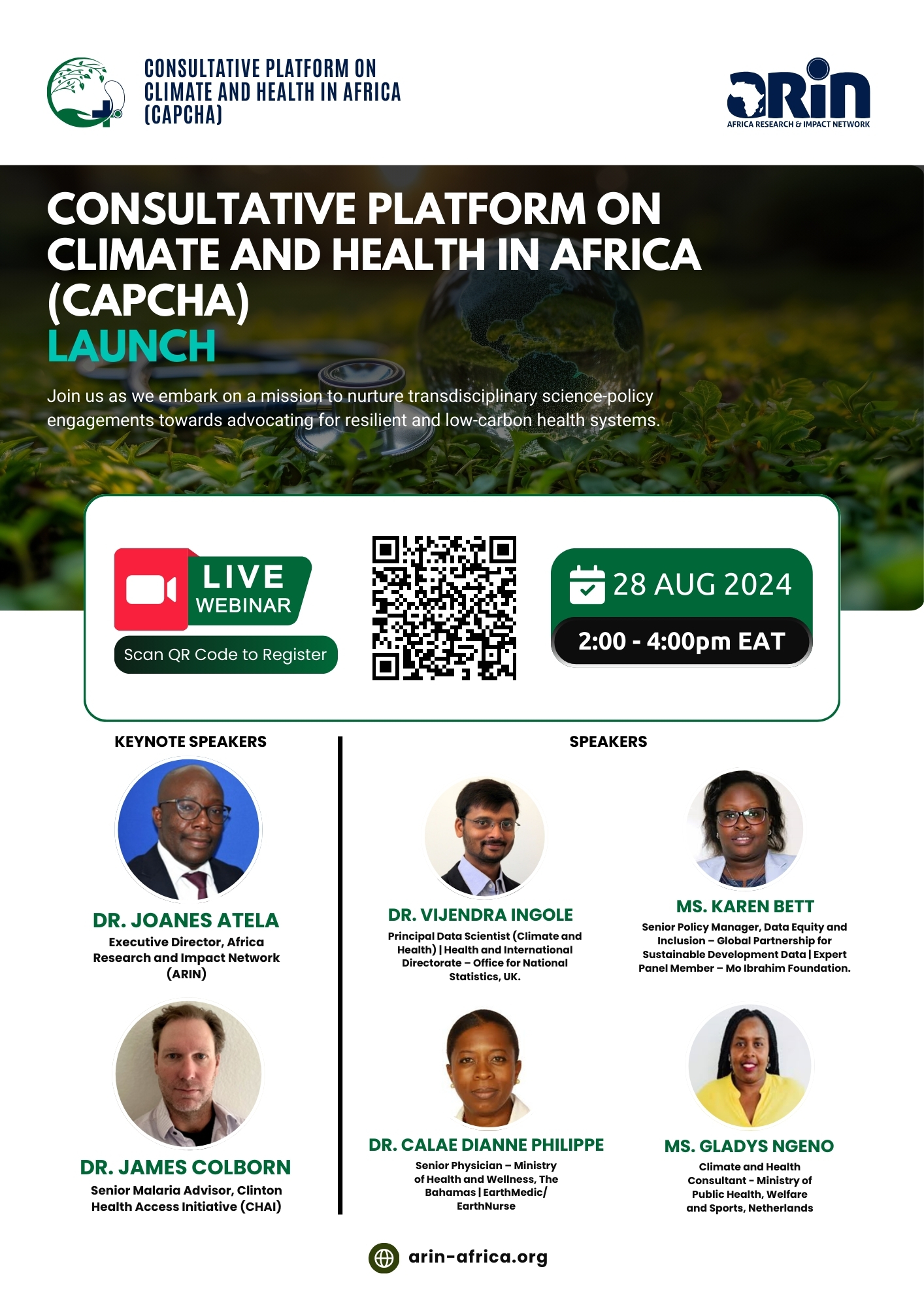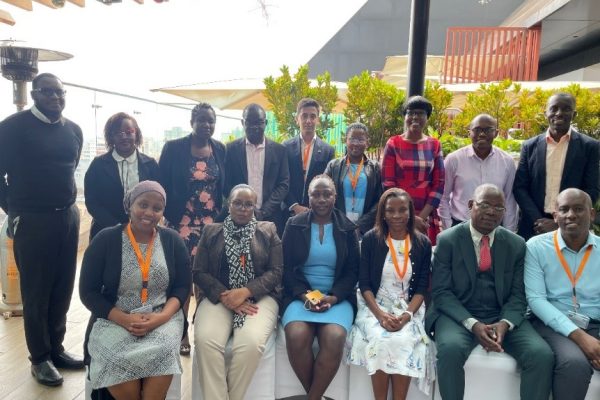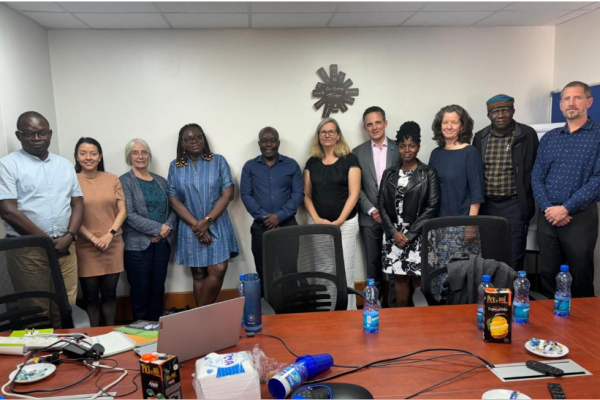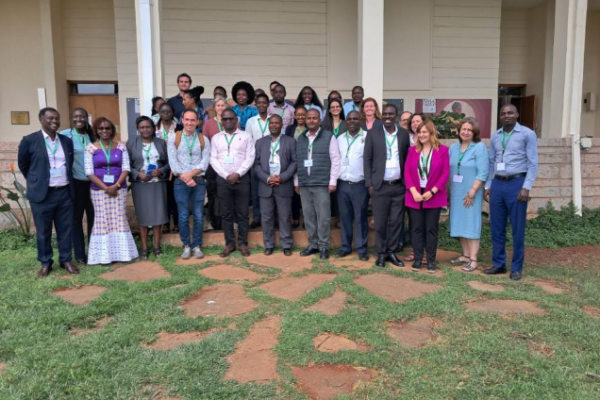By Florence Onyango & Ann Irungu
The Africa Research and Impact Network (ARIN) has successfully launched the Consultative Platforms for Climate and Health in Africa (CAPCHA) during a highly anticipated virtual event. Designed to address Africa’s pressing climate and health challenges, the platform will foster collaboration across diverse fields through a transdisciplinary approach.
Setting a positive tone for the event, Eurallyah Akinyi delivered welcoming remarks, outlining the objectives and agenda of the event. She emphasized the platform’s potential to bridge gaps between climate and health research across Africa.
Introducing CAPCHA, Dr. Joanes Atela, Director of ARIN, emphasized the platform’s role in catalyzing transdisciplinary research to develop integrated solutions for Africa’s climate and health issues. “Our challenges are multisectoral, all impacting healthcare systems. Transdisciplinary research is key to addressing these issues,” Dr. Atela stated, as he demonstrated CAPCHA’s interface and outlined the expected outcomes. He highlighted how CAPCHA builds on ARIN’s extensive work, aiming to create substantial impact.
In a compelling keynote address, Dr. James Colborn from the Clinton Health Access Initiative shared insights into the current climate and health context in Africa. He highlighted the urgent need for transdisciplinary approaches to mitigate the impacts of climate change on public health, stressing that rising mean temperatures will increasingly stress systems and livelihoods across the continent.
The event featured several expert contributions that further underscored CAPCHA’s significance. Ann Irungu from ARIN highlighted the platform’s unique approach to uniting diverse disciplines to address climate and health challenges holistically. Karen Bett, representing the Global Partnership for Sustainable Development Data and the Mo Ibrahim Foundation, discussed existing policy gaps and the critical role CAPCHA could play in addressing them, making it a vital venue for sharing and developing policy solutions.
Additionally, Dr. Vijendra Ingole from the Office of National Statistics, UK, provided insights on the governance models crucial for platforms like CAPCHA to function effectively. He emphasized the need for strong coordination and the promotion of transdisciplinary collaboration to address emerging data trends and challenges.
Drawing from her experience, Dr. Calae Philippe of the Bahamas Ministry of Health and EarthMedic/EarthNurse provided lessons from similar initiatives. He praised CAPCHA’s inclusive approach to capturing the needs of informal communities, ensuring no one is left behind in the collective effort to tackle climate and health issues.
An interactive engagement session, facilitated by Leah Aoko, encouraged participants to ask questions and delve deeper into the themes presented. The event was annexed to a panel discussion that addressed critical gaps in tackling climate and health challenges in Africa, focusing on resource mobilization, multi-stakeholder engagement, and the adoption of effective coordination models.
Summarizing the day’s discussions, Victoria Chengo delivered the closing remarks, reiterating CAPCHA’s potential to drive meaningful change across Africa’s climate and health sectors. She emphasized that CAPCHA is not merely a platform but a movement towards a more resilient and sustainable future for Africa, urging participants to stay engaged and contribute to its success.
With CAPCHA now officially launched, ARIN plans to engage a broader audience and facilitate an ongoing dialogue on integrated climate and health solutions. The platform’s progress and impacts will be showcased at the upcoming ARIN International Conference on Climate and Health in November 2024.




